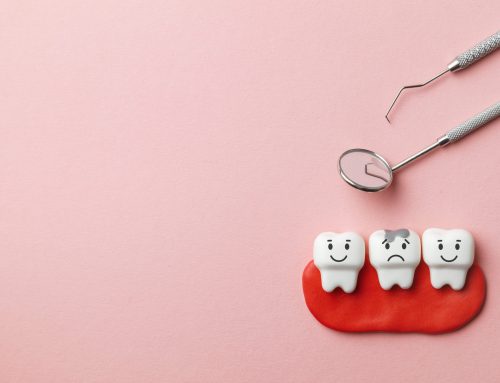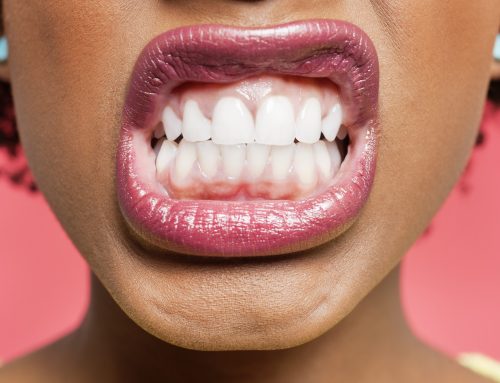Your smile is one of your greatest assets. It tells your story, expresses joy, and gives you confidence. But just like the rest of your body, your teeth evolve with time. The good news? With the right care, you can keep your smile strong, bright, and healthy for decades.
From enamel thinning to gum recession, understanding how aging affects your teeth and overall oral health empowers you to take action so your smile stays just as radiant as you feel.
Think of your teeth as lifelong companions that need a little extra care as you age. With the right habits and professional guidance, you can enjoy a healthy, beautiful smile well into your golden years. Let’s explore the most common changes and, more importantly, what you can do to protect and enhance your oral health at every stage of life.
Why Teeth Yellow with Age
One of the most noticeable changes as we age is the discolouration of teeth. But why do teeth yellow with age? Over time, the enamel (the protective outer layer of your teeth) gradually wears away, exposing the dentin beneath. Dentin is naturally yellow, so as it becomes more visible, your teeth may appear duller or darker.
Years of consuming staining foods and drinks, such as coffee, tea, and red wine, can also lead to discolouration. And, smoking and certain medications can play a role in changing the colour of your teeth.
What You Can Do About Yellowing Teeth:
- Brush twice a day with a whitening toothpaste and floss daily to remove surface stains.
- Consider professional teeth whitening treatments at Somerset Dental to restore a brighter smile.
- Limit consumption of staining foods and drinks, and rinse your mouth with water after consuming them.
Worried about changes in your smile? Schedule a consultation today! The team at Somerset Dental is here to help you keep your teeth healthy at every stage of life.
The Connection Between Bone Loss and Dental Health
As we age, bone density naturally decreases throughout our body, including in the jawbone. This bone loss can significantly impact your oral health. Bone loss in the jaw can weaken the foundation of your teeth, leading to loose teeth or even tooth loss. It’s also closely tied to gum disease, which is more prevalent in older adults.
What You Can Do About Bone Loss:
- Maintain regular dental checkups to monitor bone health and detect issues early.
- Follow a thorough oral hygiene routine to prevent gum disease, which can accelerate bone loss.
- Ask your dentist about options like bone grafting or dental implants to restore stability if you’ve experienced significant bone loss.
Preventing Tooth Loss as You Get Older
Tooth loss is not an inevitable part of aging. With the right care, you can preserve your natural teeth well into your golden years. However, neglected oral hygiene, untreated cavities, and advanced gum disease are common culprits behind tooth loss as you get older.
What You Can Do to Prevent Tooth Loss:
- Schedule regular cleanings and dental exams to catch oral health problems early.
- Address cavities, cracked teeth, or other dental issues promptly to prevent further damage.
- Consider restorative options, such as dental crowns, bridges or implants to protect weakened teeth.
Aging and Gum Recession
Gum recession is another common concern as we age. Recession occurs when the gum tissue pulls back from the teeth, exposing the roots. Aging and gum recession often go hand in hand due to factors like gum disease, aggressive brushing, or simply the natural wear and tear on your gums over time. Exposed roots not only make teeth more sensitive but also increase the risk of decay and other oral health issues.
What You Can Do About Gum Recession:
- Use a soft-bristled toothbrush and gentle brushing technique to protect your gums.
- Keep up with regular cleanings to prevent plaque buildup, which can irritate gums.
- Talk to your dentist about gum grafting to address significant recession.
How Aging Affects Your Teeth Overall
As you age, your teeth and gums face a variety of changes, including:
Thinning enamel → Thin enamel makes teeth more vulnerable to damage and discolouration.
Shifting teeth → Teeth can gradually move or become crowded over time, affecting both appearance and function.
Dry mouth → Reduced saliva production is common with age, often due to medications or health conditions, and can increase the risk of cavities.
What You Can Do:
- Stay hydrated and chew sugar-free gum to stimulate saliva production.
- Wear a custom mouth guard if teeth grinding is causing wear or shifting.
- Visit your dentist regularly to monitor changes and build a personalized care plan.
Dental Care in Your 40s, 50s, 60s, and Beyond
Understanding how your oral health evolves in each decade can help you stay proactive and maintain a healthy smile for life.
In Your 40s: Prevention is Key
→ Watch for early signs of gum recession and address them promptly.
→ Monitor enamel thinning and consider preventive treatments like fluoride applications.
→ Start thinking about orthodontic options like Invisalign if teeth shifting becomes noticeable.
→ Schedule regular cleanings and exams to detect issues early.
In Your 50s: Focus on Restoration and Maintenance
→ Address tooth wear from years of grinding or clenching with solutions like mouth guards.
→ Be vigilant about bone health, as bone density may start to decline.
→ Explore cosmetic treatments like veneers or bonding to maintain a confident smile.
→ Watch for dry mouth symptoms and manage them with hydration and professional advice.
In Your 60s and Beyond: Preserve Function and Comfort
→ Replace missing teeth with options like dental implants or bridges to maintain function and appearance.
→ Monitor for oral-systemic health issues (links between gum disease and heart health).
→ Stay on top of gum health with professional cleanings and minimally invasive treatments like Solea Laser therapy.
→ Consider comprehensive restorative plans if significant tooth loss or bone loss has occurred.
Want to dive even deeper into senior dental care? Check out our article on Oral Health for Seniors: Managing Common Age-Related Dental Problems for expert insights on preventing dry mouth, maintaining strong gums, and keeping your smile healthy.
Become a Happy Patient Today
At Somerset Dental on James, we understand the unique challenges that come with aging and oral health. Our team is here to help you navigate these changes with confidence. From preventive care to advanced restorative treatments like dental implants, veneers, and Solea laser therapy, we offer personalized solutions to support your smile at every stage of life.
Whether you’re concerned about gum recession, discolouration, or preventing tooth loss, we’re committed to providing compassionate care tailored to your needs. We also understand the importance of oral health in relation to overall health, helping you manage conditions like diabetes or osteoporosis that can affect your smile.
Aging may bring changes to your teeth and gums, but it doesn’t mean you have to sacrifice a healthy, vibrant smile. By understanding how aging affects your teeth and taking proactive steps, you can enjoy strong, beautiful teeth for years to come. Remember, regular dental visits and a consistent oral hygiene routine are your best allies in preserving your smile as you age.
Contact us today to schedule a consultation and learn how we can help you maintain a healthy, youthful smile.






Leave A Comment